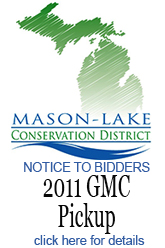
The White Lake Montague Dump site restoration was littered with rusty barrels, tires and other debris.

The White Lake Causeway after restoration shows healthy wildlife and new recreational opportunities.
CHICAGO – The U.S. Environmental Protection Agency announced Thursday, Oct. 30, that White Lake in the Montague/Whitehall area has been removed from the binational list of toxic hotspots that were targeted for cleanup in the US-Canada Great Lakes Water Quality Agreement.
White Lake, in the Lake Michigan basin, is one of two US “areas of concern” that has been removed from the list. Deer Lake in the Lake Superior basin was also removed.
The White Lake “area of concern” was contaminated by decades of pollution from tannery operations, chemical manufacturing and other sources. Over 100,000 cubic yards of contaminated sediment were removed during the White Lake “area of concern” clean up. Great Lakes Restoration Initiative funding
totaling $2.1 million was used to complete the final work required for delisting — a project to restore the shoreline and over 40
acres of degraded fish and wildlife habitat.
Federal agencies have accelerated cleanup actions during the past five years by using Great Lakes Restoration Initiative funding. The United States and Canada designated 43 “areas of concern” under the 1987 Great Lakes Water Quality Agreement, in an effort to target sites contaminated primarily by industrial activity that occurred before modern environmental laws were enacted.
Last summer, the Michigan DEQ formally requested that EPA start the process to delist the Deer Lake and White Lake “areas of concern.” EPA reviewed the environmental monitoring data submitted with Michigan DEQ’s requests and determined that both “areas of concern” were eligible to be delisted. Michigan DEQ will continue to monitor ecological conditions in the delisted “areas of concern,” with support from EPA.
For more information on the Great Lakes Restoration Initiative, visit www.glri.us.
 (1).png)
.jpg)
-Mason-County-Press.png)




.png)









































.png)


















